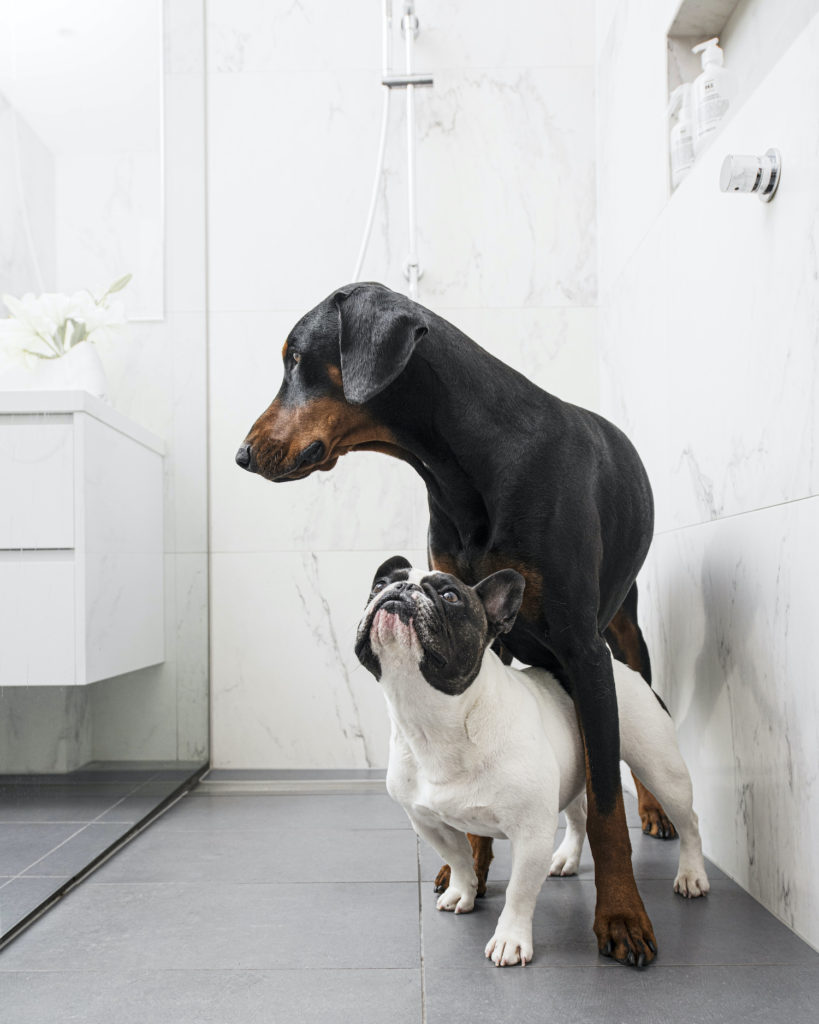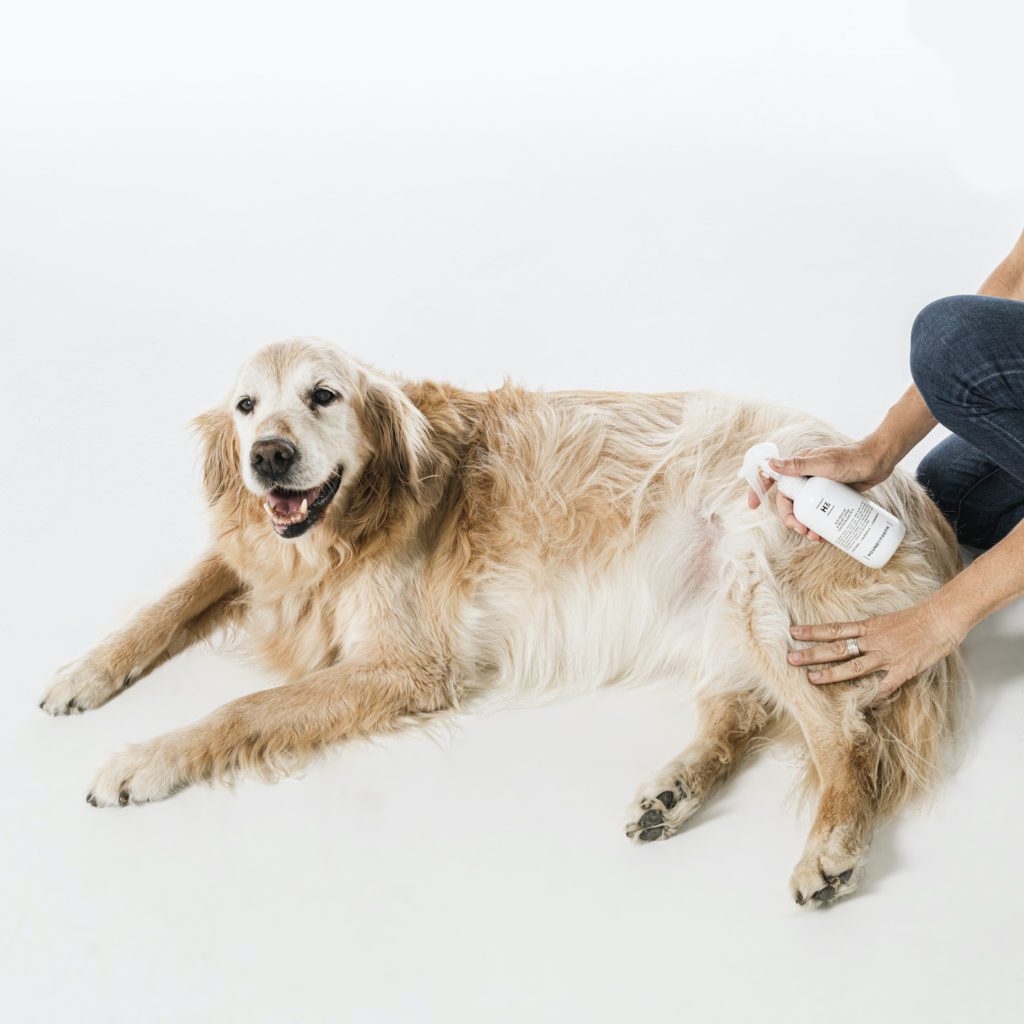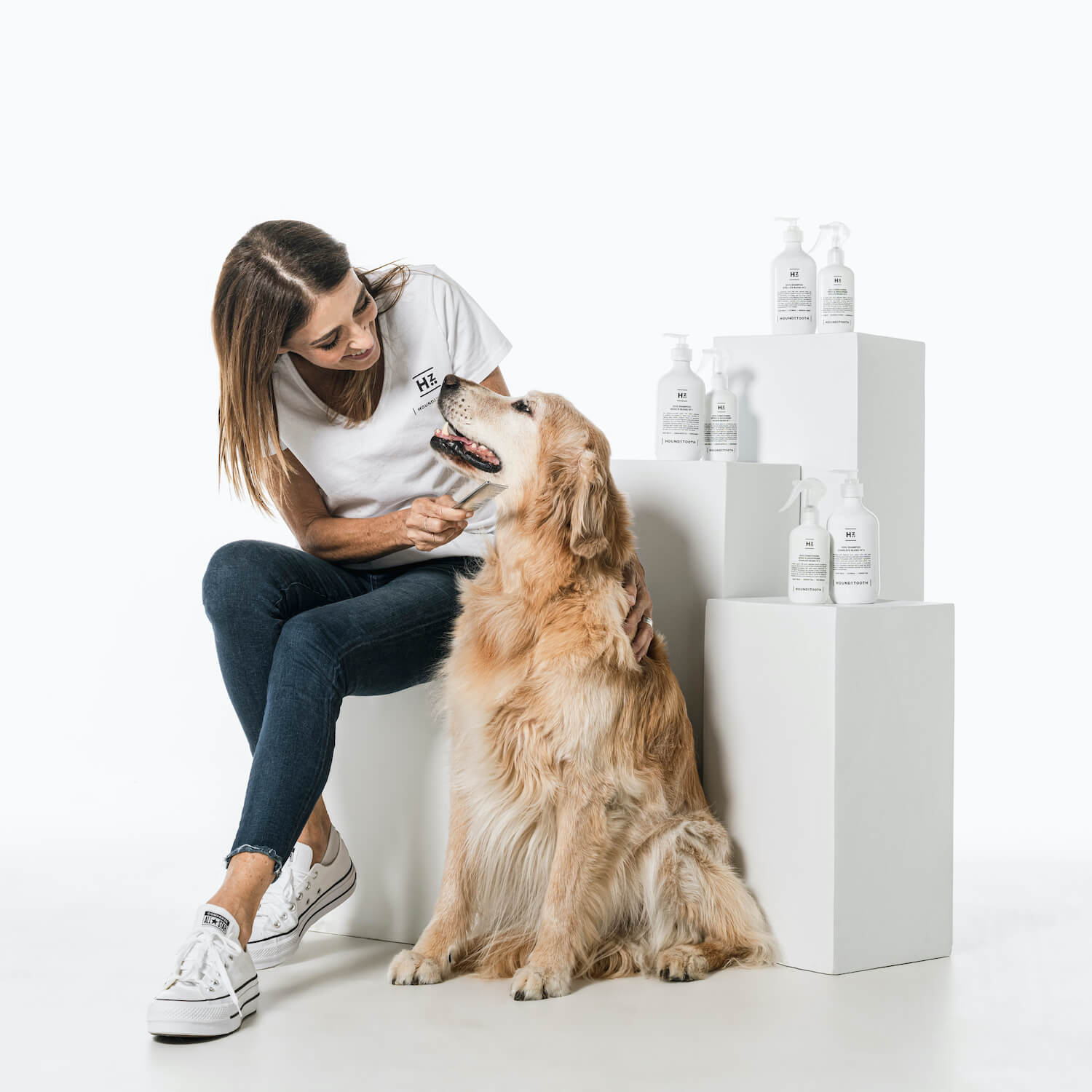Dr. Katrina Talks Tips & Dog Shampoo for Itchy Skin
Ditching the itch with dog shampoo for itchy skin and other remedies
Itchy skin is one of the most common reasons that dogs – and particularly small dogs – are taken to the vet.
If your dog has itchy skin, it will be feeling pretty distressed and uncomfortable. As their owner, we understand how it can also be frustrating and upsetting for you!
If your dog is suffering from persistent itching, it will constantly scratch, lick and bite its skin, and all that scratching can lead to secondary skin infections and lesions.
Talk to the professionals
There are many reasons why your dog may have itchy skin, and the best way to identify the cause is by a simple process of elimination.
Your vet is the best person to guide you through this process. They can help you create a plan to figure out the cause of the itch and how best to manage it. If there is a secondary infection or your pup needs help soothing the irritation, they may also need medication or antibiotics.
Common causes for itching
The most common causes of your dog’s itch are fleas, allergies and food intolerance.
However, itchy skin can also be caused by infections, insect bites or chemicals and irritants found in some pet shampoos & conditioners.
With incessant itching and scratching comes the disintegration of the outermost skin barrier.
Once this protective layer has been removed, the skin can no longer protect itself against environmental allergens and irritants. A vicious cycle, this leads to the skin drying out further and the itch only getting worse.

Fleas
Fleas are extremely irritating for dogs, just like mosquitoes are for humans.
In some dogs (and other pets), a single flea bite can cause a very aggravating skin condition called Flea Allergy Dermatitis.
If your pup is suffering from this condition, they will frantically scratch and bite their coat, licking themselves constantly.
Allergies
Humans with allergies tend to get watery eyes, a runny nose and a serious case of sneezes. But dogs with allergies often present through itchy skin.
- Atopic dermatitis is a type of allergy triggered by environmental factors such as pollens, dust mites or smoke. These allergens will cause your dog’s immune system to overreact.
- Food allergies occur when your pup’s immune system reacts to something in its food. This could be anything from protein and wheat to preservatives or soy.
Whatever allergy your dog is suffering from, your vet can help you determine the cause.
5 tips to help your dog’s itchy skin
1. Eradicate fleas
Ensure flea treatments are up to date and keep your pup protected from fleas all year round.
Choose a flea product that breaks the flea life cycle and be sure to thoroughly clean your pet’s environment – wash all bedding and vacuum thoroughly.
2. Use a soothing pet shampoo & conditioner
Human shampoo is formulated for human skin and can strip the natural oils from your dog’s. This can cause irritation and itchiness.
It’s important that you use a soothing, natural, hypoallergenic and sulphate-free shampoo and conditioner – this will also help to further protect and nourish the skin.
Houndztooth has a range of natural dog shampoo cleans and conditions sensitive skin:
- Hugo’s Blend No.1 Dog Shampoo for Delicate Skin
- Stella’s Blend No.2 Dog Shampoo for Irritated Skin
- Hemp Shampoo for Problem Prone Skin
Our favourite dermal topical spray also helps to complement the above shampoos and suitable for dogs who are prone to scratchy skin.

3. Provide essential fatty acids
A diet rich in omega 3 and 6 fatty acids may help common skin issues. Our Australian Hemp Seed Oil is high in antioxidants and omegas 3, 6 and 9. Compliment your dog’s diet with healthy treats full of omega oils and healthy fats like our 100% Australian Ocean Trout training treats.
4. Wipe down paws and coat
If you suspect your dog has an allergy to grass, be sure to wipe down their feet and tummy with a damp cloth after any time spent outdoors. This will remove any lingering allergens.
The perfect natural grooming product for this occasion is Frankie & Felix’s Blend No.5 Waterless Shampoo For Dogs & Cats With Oatmeal. Follow it up with our Coco’s Blend No.4 Rescue & Relief Spray!
5. Consider your dog’s bedding
Dog beds often harbour allergens such as dust mites. To ensure these allergens don’t affect your pup, it is important that you wash their bedding regularly (once a week).
If bedding is more than a year old, consider replacing it – ideally with a hypoallergenic dog bed that is machine washable.
>>> Our Australian itch-free dog shampoo will soothe your pup’s irritated skin <<<

